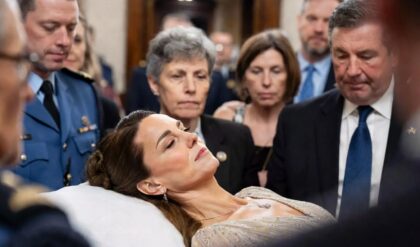The Silence of the Lambs (1991), directed by Jonathan Demme, remains a cornerstone of psychological horror and crime thrillers, largely due to Jodie Foster’s portrayal of FBI trainee Clarice Starling. The film, adapted from Thomas Harris’s novel, follows Starling as she navigates a high-stakes investigation to catch serial killer Buffalo Bill, with guidance from the chillingly brilliant Dr. Hannibal Lecter, played by Anthony Hopkins. While the film earned critical acclaim, sweeping the “Big Five” Academy Awards—Best Picture, Director, Actor, Actress, and Adapted Screenplay—it also sparked debate about its depiction of FBI procedures. A notable critique came from an FBI profiler who highlighted a key flaw: “We don’t send people out alone,” referring to the unrealistic portrayal of Starling’s solo fieldwork as a trainee. This article explores Foster’s performance, the profiler’s critique, and the broader impact of The Silence of the Lambs on cinema and perceptions of the FBI, weaving together insights from FBI consultants, Foster’s preparation, and the film’s cultural legacy.
Jodie Foster as Clarice Starling: A Career-Defining Performance
Jodie Foster’s portrayal of Clarice Starling is a masterclass in balancing strength and vulnerability. At 29, Foster was already an established actress, having earned an Oscar for The Accused (1988). However, her role as Starling cemented her as a cinematic icon. Clarice, a determined yet inexperienced FBI trainee, is thrust into a world of serial killers and institutional misogyny. Foster’s performance captures Starling’s resilience as she navigates a male-dominated environment while confronting her own trauma, symbolized by the “screaming lambs” from her childhood.
Foster’s preparation for the role was rigorous. She spent extensive time at the FBI’s Quantico training facility, working with agents like Mary Ann Krause and Jana Monroe to understand the realities of being a female agent. Krause, who inspired the scene where Clarice cries by her car to release emotional strain, shared insights into the overwhelming nature of investigative work. Monroe, one of the few female profilers at the time, guided Foster on how to carry herself with authority in high-pressure situations, particularly when facing a figure as intimidating as Lecter. These interactions shaped Foster’s nuanced portrayal, grounding Starling in authenticity despite the film’s dramatic liberties. Foster herself noted in a 2017 BFI Q&A that she saw Clarice as a woman “trying to overcome the failure of the body she was born in,” emphasizing her quiet determination and shame at not being “bigger” or “stronger.”
Foster’s commitment extended beyond technical training. She lobbied hard for the role, despite not being director Jonathan Demme’s first choice—Michelle Pfeiffer and Meg Ryan were considered, with Demme initially skeptical of Foster’s ability to shed her “California” persona. Foster’s feminist interpretation of the script, viewing it as “one young woman trying desperately to save another,” won Demme over. Her performance, marked by a deliberate, slow cadence and minimal contractions in speech, reflected Clarice’s effort to present herself as more educated than her West Virginia roots suggested. This attention to detail made Starling a relatable yet aspirational figure, resonating with audiences and inspiring a generation of women to pursue careers in law enforcement.
The FBI Profiler’s Critique: “We Don’t Send People Out Alone”
Despite its critical success, The Silence of the Lambs drew scrutiny from FBI professionals for its portrayal of Starling’s fieldwork. An FBI profiler, as cited in a 2025 ScreenRant article, pointed out a significant flaw: “We don’t send people out alone.” In the film, Clarice, still a trainee, is sent to interview Hannibal Lecter and later conducts field investigations, including a climactic confrontation with Buffalo Bill, without a partner. This depiction, while dramatically compelling, deviates from FBI protocol. Trainees at Quantico do not carry credentials or weapons, nor are they assigned to active cases until they graduate and are assigned to a field office.
Jana Monroe, who advised Foster during filming, echoed this sentiment in a 2023 Daily Beast interview. She noted that a trainee like Clarice would “never be handed that much responsibility, or a gun, or be exposed to that much horrible risk.” The FBI’s Behavioral Science Unit (now Behavioral Analysis Unit), which assisted with the film’s production, emphasized teamwork in profiling and investigations. Agents typically work in pairs or teams, especially when dealing with dangerous individuals like Lecter or active cases like Buffalo Bill’s. The solo narrative, while heightening the film’s tension, sacrifices realism for storytelling. Monroe acknowledged, however, that this artistic choice made Clarice’s journey more gripping and contributed to the film’s success as a recruiting tool for women, with applications spiking for two years after its release.
The FBI’s involvement in the film was extensive, with agents like John Douglas, a pioneer in criminal profiling, consulting on the script and providing insights to Harris and the cast. Scenes were filmed at Quantico, and agents played extras to enhance authenticity. However, certain portrayals, such as Jack Crawford (Scott Glenn) joining Clarice in the field, were altered for dramatic effect. In reality, a senior agent like Crawford would oversee operations from a command center, not engage directly in fieldwork. These deviations highlight the tension between cinematic storytelling and procedural accuracy, a trade-off Demme and screenwriter Ted Tally knowingly made to prioritize Clarice’s emotional and psychological journey.
Cultural Impact and Legacy
The Silence of the Lambs redefined the psychological thriller genre, blending horror, crime, and character drama. Its success—grossing over $272 million worldwide and winning five Oscars—stemmed from its ability to humanize complex characters while confronting dark themes. Foster’s Clarice, navigating a “suffocating patriarchy,” became a feminist icon, her journey reflecting the challenges women face in male-dominated fields. The film’s focus on Clarice’s perspective, often shot from her point of view, immersed audiences in her vulnerability and strength, forcing them to confront the “male gaze” she endured, from Lecter’s piercing stare to the dismissive glances of male colleagues.
The film also sparked discussions about representation. Critics have debated its depiction of Buffalo Bill, who skins women to create a “woman suit,” with some arguing it perpetuates harmful stereotypes about transgender individuals. Foster addressed this in a 2021 Daily Beast interview, clarifying that Harris’s novel explicitly states Buffalo Bill is not transgender but rather someone who “hates himself and wants to change.” Despite this, the character’s portrayal remains controversial, reflecting the era’s limited understanding of gender identity.
Foster’s performance, paired with Hopkins’s chilling Lecter, created a dynamic that transcended the screen. Their scenes, though limited to about 16 minutes of shared screen time, are the film’s emotional core. Foster admitted to being terrified of Hopkins during filming, avoiding him on set until the final day, a dynamic that enhanced their on-screen chemistry. Hopkins, in turn, was intimidated by Foster’s recent Oscar win, adding authenticity to their tense exchanges. This mutual respect, coupled with Demme’s masterful direction, made their interactions unforgettable, with lines like “You still wake up sometimes, don’t you? You wake up in the dark and hear the screaming of the lambs” resonating decades later.
Clarice Starling’s Enduring Influence
Clarice Starling remains a cultural touchstone, embodying resilience in the face of adversity. Foster’s portrayal inspired countless women to join the FBI, despite the agency’s own struggles with gender equity. A 2022 Department of Justice report found that female trainees faced disproportionate dismissals and sexist behavior, mirroring Clarice’s experiences in the film. Yet, her determination to “save the woman”—both Catherine Martin and herself—continues to resonate, making her a symbol of empowerment.
Foster never reprised the role, citing scheduling conflicts and dissatisfaction with subsequent scripts like Hannibal (2001). However, her performance in The Silence of the Lambs endures as a landmark in cinema. The FBI profiler’s critique—“We don’t send people out alone”—underscores the film’s departure from reality, but it also highlights Clarice’s unique strength. Alone or not, she faced monsters, both human and institutional, and emerged victorious, thanks to Foster’s indelible portrayal.





